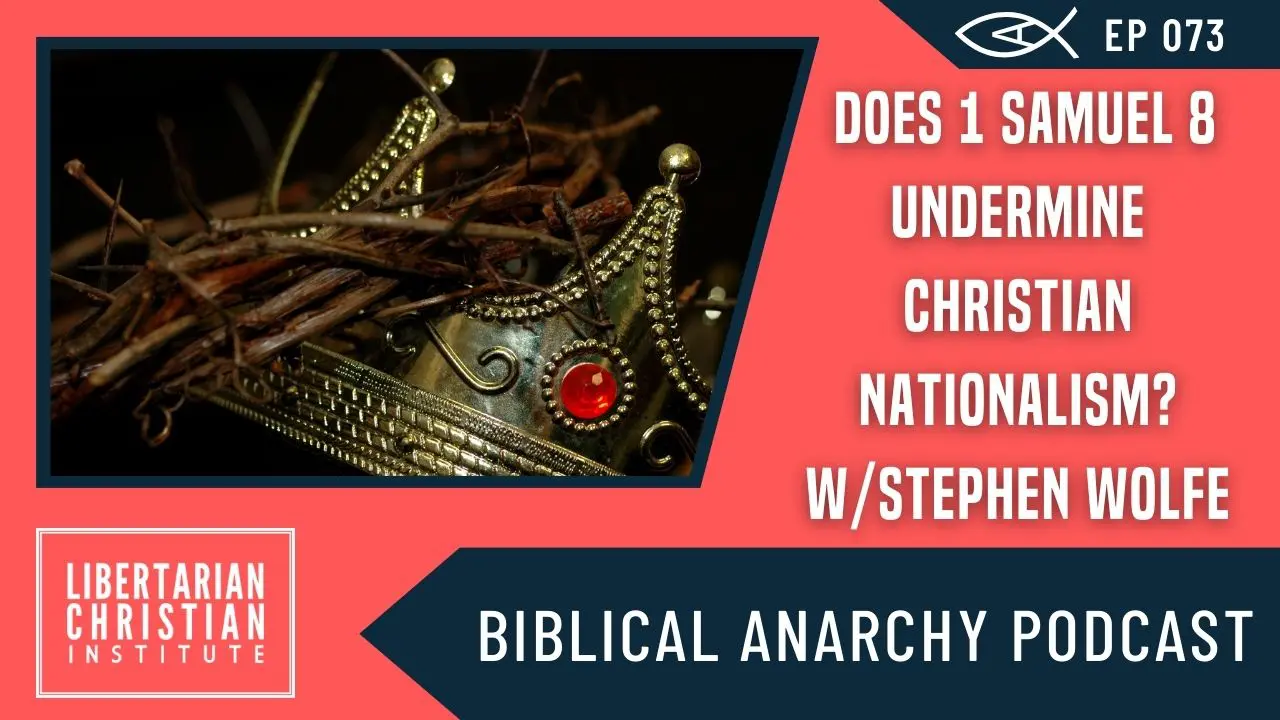

Jacob engages in a thoughtful and deep conversation with Stephen Wolfe, well-known Christian nationalist political philosopher and author. The discussion focuses on the distinctions and intersections between Christian nationalism and Christian libertarianism, particularly in their views on government, political theory, and the role of biblical principles in shaping societal structures. Wolfe elaborates on his perspective that, while Christian libertarianism often emphasizes limiting government power, Christian nationalism considers a broader and more integrated approach to governance, informed by both divine principles and practical considerations of human society.
The dialogue reveals areas of both agreement and tension between the two perspectives, particularly regarding the source and extent of governmental authority and the role of Christian ethics in public life. The conversation provides listeners with a nuanced exploration of how these ideologies differ yet also share common ground, particularly in their desire to see governance that reflects Christian values.
| Section | Topics Discussed |
|---|---|
| Introduction | Introduction to the podcast and guest, Stephen Wolfe. Overview of Stephen Wolfe’s background and contributions to political philosophy, particularly in Christian nationalism. |
| Christian Nationalism vs. Christian Libertarianism | Definition and core tenets of Christian nationalism. Exploration of Christian libertarianism and its emphasis on limiting government. Comparison of the two ideologies regarding the role and scope of government. |
| Biblical Basis for Political Theory | Discussion on how the Bible informs political theory from both perspectives. Examination of specific biblical passages (e.g., 1 Samuel 8, Hosea 11-13) and their interpretations. The role of natural law and reason alongside biblical principles in political governance. |
| The Nature and Limits of Government | Debate on the extent of governmental power and the idea of a “limited government.” The role of civil power and its appropriate use in society. Consideration of constitutionalism and its importance in curtailing the abuse of power. |
| Practical Implications and Challenges | Challenges in applying Christian principles to modern governance. Discussion on the risks of centralizing power and the need for checks and balances. Reflections on historical and contemporary examples of governance informed by Christian ethics. |
| Conclusion | Closing thoughts on the ongoing dialogue between Christian nationalists and libertarians. Encouragement for continued respectful and constructive discussion on these critical issues. |
The Christians for Liberty Network is a project of the Libertarian Christian Institute consisting of shows and hosts offering various perspectives on the intersection of Christianity and libertarianism. Views expressed by hosts and guests do not necessarily reflect the view of the organization, its staff, board members, donors, or any other affiliates (including other hosts or guests on the network). Guest appearances or interviews of any incumbents, officials, or candidates for any political, party, or government office should not be construed as endorsements. The Libertarian Christian Institute is a 501(c)(3) non-profit organization and does not endorse any political party or candidate for any political, government, or party office. For information about the Libertarian Christian Institute’s core values, please visit this page.
), //libertarianchristians.com/wp-content/plugins/smartquizbuilder/includes/images/template6-latest.jpeg))

), https://libertarianchristians.com/wp-content/plugins/smartquizbuilder/includes/images/template6-latest.jpeg))








































), https://libertarianchristians.com/wp-content/plugins/smartquizbuilder/includes/images/template6-latest.jpeg))
), https://libertarianchristians.com/wp-content/plugins/smartquizbuilder/includes/images/template6-latest.jpeg))
), https://libertarianchristians.com/wp-content/plugins/smartquizbuilder/includes/images/template6-latest.jpeg))





Sign up and receive updates any day we publish a new article or podcast episode!